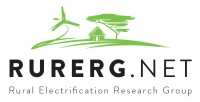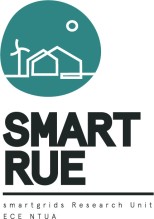Open source data logger modules
Version 2
An open source data logger is being developed to enable accurate measurement of the electrical and the environmental parameters of a small wind turbine installation, while similar data logging concepts can be used for many monitoring aspects in off-grid micro-energy systems. The core of the SmartRUE data logger is based on an STM32F4 controller and the design focuses on ease of use, robustness and modularity. The implementation is entirely based on open source philosophy with emphasis on flexibility of the applications as well as the minimization of cost.
The project aims at developing all the necessary modules in order to create a data logger compliant with the IEC 61400-12-1 specifications for power performance measurements of electricity producing wind turbines. A reduced set of the data logger building blocks can be combined in order to build a basic data logging setup with minimal cost, for low cost, DIY applications such as rural electrification development projects.
The data logger is divided in the following modules: Power supply, Input Sensors modules: Electrical, Meteorological and custom, Core Module, External Interface Devices and Post Processing software.
Each module has a self consistent repository for easier project management and individual development of all the module components. Target of this design is the development of modular/reusable components so module isolation is a essential.
The sensor modules are connected to the external devices (voltage and current sensors, anemometer, wind vane etc.) and their inputs are the desirable measurands, while the micro controller processes the data and feeds the converted signals to the post proccessing software module. This includes the database that stores the measurements and the software that processes the measurements and gives the user useful statistical analysis tools, compliant with the IEC 61400-12-1 international standard.
Version 1
An open source data logger is being developed to enable accurate measurement of the electrical and the environmental parameters of a small wind turbine installation, while similar data logging concepts can be used for many monitoring aspects in off-grid micro-energy systems. The open source data logger is based on the Raspberry Pi 3 platform and the design focuses on ease of use, robustness and modularity.
Taking advantage of the significant processing capabilities of the Raspberry Pi platform, the data logger features both data acquisition and processing in one device, thus further decreasing the overall cost of the logging unit, currently being a considerable fraction of the overall installation cost. It implements a three phase multifunction energy meter to acquire the AC current and voltage as well as the active and reactive power produced by the wind turbine. In addition, the DC voltage and current are measured with a high accuracy analog-to-digital converter, along with environmental parameters such as wind speed, wind direction, humidity, temperature and barometric pressure.
Preliminary experiments at the NTUA lab facilities indicate high accuracy, less than 1% uncertainty for AC current, at the operating frequencies of the majority of the open source hardware small wind turbines tested at the NTUA.
An Arduino shield has also been developed, featuring the same AC data acquisition modules, for an even lower cost data logger that is focused on robustness and reliability, as a result of the microcontroller architecture (AVR) present on the Arduino platform.
Post-processing and storage capabilities are under research at the moment, along with further improvements, regarding the visualization of the real time measurements, using open source software frameworks, already developed and field tested, such as the one developed in the context of the OpenEnergyMonitor project, namely Emomcms (https://emoncms.org/). Finally, remote monitoring capabilities are being studied, taking into account the particularities present in the majority of small wind turbine installations sites and off-grid micro-energy systems in general (e.g usually no Internet or cellular coverage).













